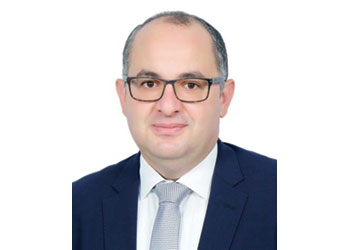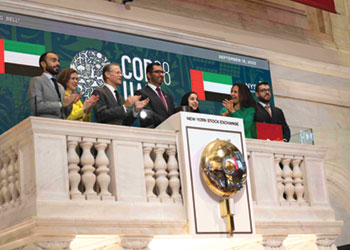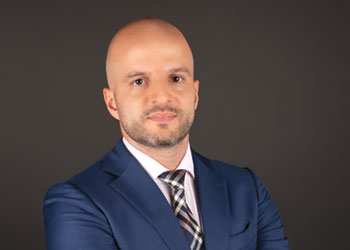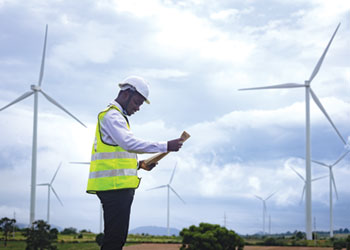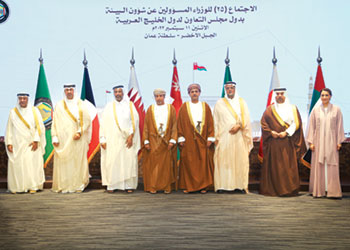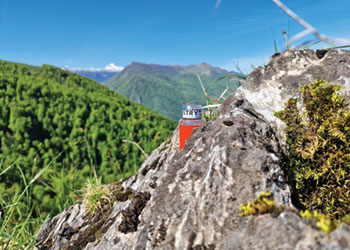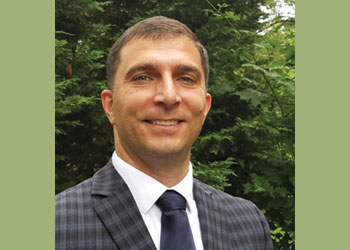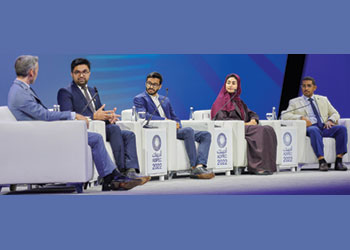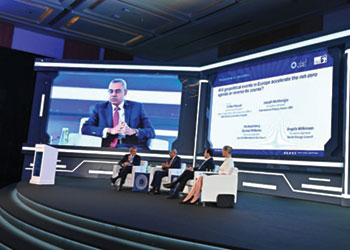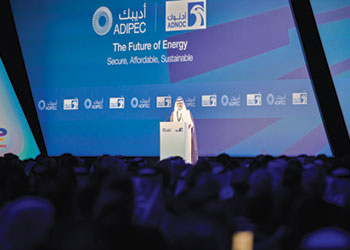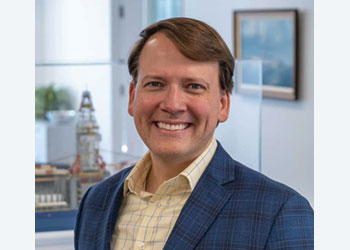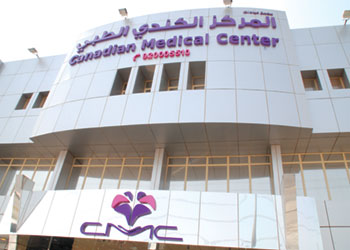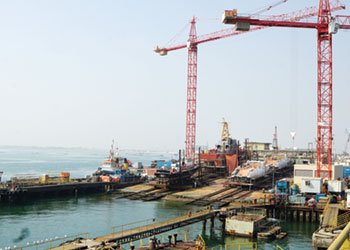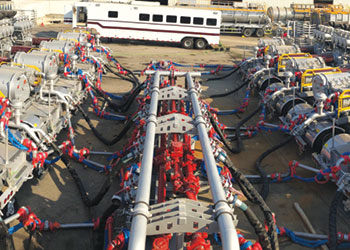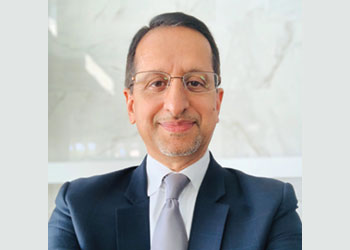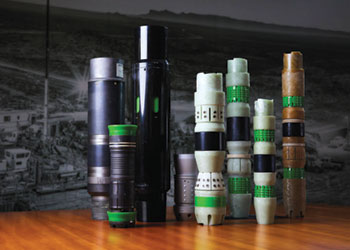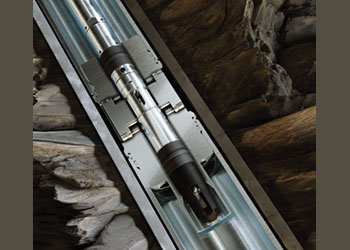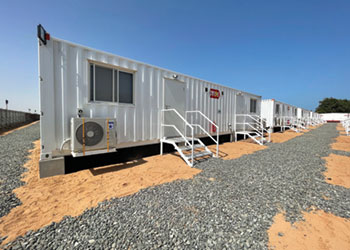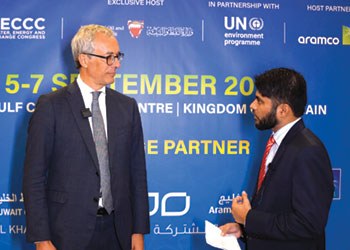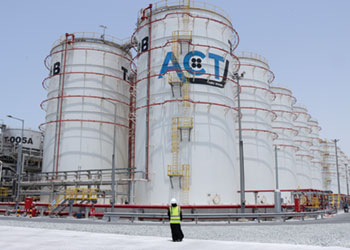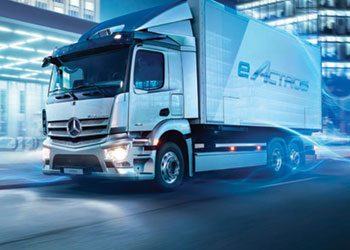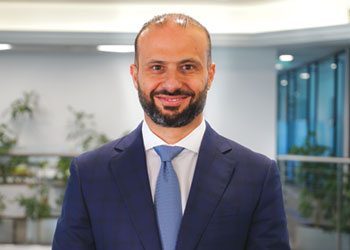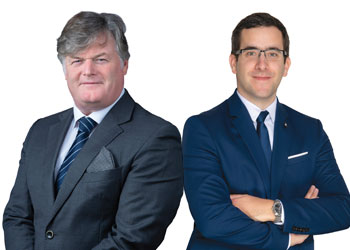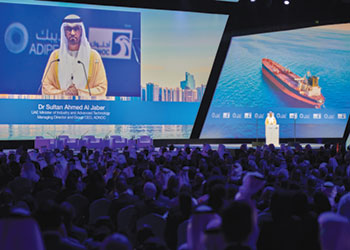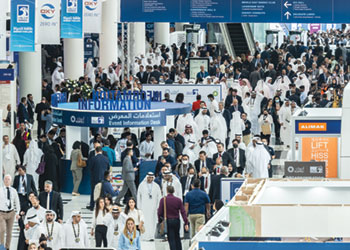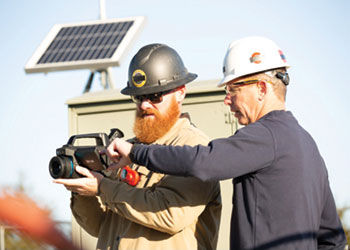
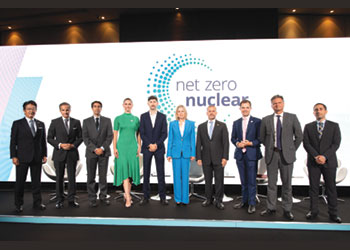 Al Hammadi, fourth from right ... pushing a nuclear agenda
Al Hammadi, fourth from right ... pushing a nuclear agenda
The time for debating is over; nuclear energy is a critical tool in securing future energy systems that are clean, resilient and secure, say industry leaders
The UAE is leading the global discussion in drawing the attention to nuclear energy’s potential to meeting global net-zero goals, and that it can supercharge the energy transition.
Mohamed Ibrahim Al Hammadi, MD and CEO of the Emirates Nuclear Energy Corporation (ENEC) - the operator of nuclear energy plants in the UAE - told the World Nuclear Symposium last month that nuclear could power energy intensive industry sustainably.
An outcome of the symposium was the joint call by ENEC and the World Nuclear Association (WNA) for close collaboration between government, industry leaders and civil society to triple global nuclear capacity to achieve carbon neutrality by 2050.
The organisations were also instrumental in the launch of ‘Net Zero Nuclear’—an initiative for action and advocacy for nuclear energy’s role in achieving global clean energy security, and supported by the International Atomic Energy Agency’s (IAEA) Atoms4NetZero initiative.
The initiative aims to focus the industry’s collective efforts on realistic, actionable, solutions-focused dialogue to enable the rapid expansion of the global nuclear fleet and the acceleration research and development into emerging nuclear technologies.
Under the banner, the industry will ensure its prominence in conversations at events such as COP28 and obtain the necessary support to have the impact required to achieve net-zero.
IAEA Director General Rafael Mariano Grossi, said: "Building on the efforts made during COP 26 and COP 27, nuclear energy will feature even more prominently at COP28. As more nations understand the role nuclear can play in achieving energy security and decarbonisation targets, global support for nuclear energy is growing."
And Dr Sama Bilbao y León, Director General of World Nuclear Association, said: "We cannot afford to underestimate the role nuclear energy must play in achieving net-zero. The time for debating is over. Nuclear energy is a critical tool in securing future energy systems that are clean, resilient and secure."
NET-ZERO NUCLEAR IS IMPORTANT
Recent weather extremes across the globe underscore the urgent need to rapidly decarbonise power production to prevent the catastrophic consequences of climate change.
 |
The Barakah Nuclear Energy has three units fully operational |
But decarbonisation of the current power system is not enough; the energy transition will require more electricity, not less, and three-quarters of a billion people still lack access to power.
To meet urgent climate goals while simultaneously addressing rising energy demand, the world needs more than energy security; it needs clean and reliable energy security.
Globally, nuclear energy has experienced a significant resurgence over the past two years, as nations rush to meet energy security and decarbonisation targets.
The industry has benefited from major policy announcements in different nations, including the UK, US, Canada, Japan, France and China, as well as growing inclusion in green financing mechanisms and a major uptick in private investment interest in nuclear energy technologies.
Recent data modelling has shown that global nuclear energy capacity should, at least, triple by 2050 to achieve climate targets while still ensuring global energy security.
This would require the worldwide rate of deployment to average 40 gigawatts (GW) per year, more than six times the rate of deployment over the past decade.
Realising that early on, the UAE has created its own success story for harnessing the potential of nuclear energy through the four-unit Barakah Nuclear Energy Plant in the Abu Dhabi emirate.
In February this year, the plant saw its Unit 3 enter commercial service. Units 1 and 2 entered commercial service in April 2021 and March 2022, respectively. Meanwhile, Unit 4 is complete as of July 2022 and is nearing its start of operations after having begun operational readiness testing.
Once commercially operational, Unit 4 will raise the Barakah plant's total clean electricity generation capacity to 5.6 GW, equivalent to 25 per cent of the UAE’s electricity needs, and will deliver more than 40 terawatt-hours (TWh) of clean electricity a year.
Altogether the plant will prevent the release of over 22 million tonns of carbon emissions and become the largest single source of clean electricity in the country.
"The development of the Barakah Nuclear Energy Plant is a catalyst for innovation and R&D in new areas, including small modular reactors (SMR), which are a key part of ENEC’s future growth, alongside other next-generation technologies. Nuclear energy and the Barakah Plant are bridges to future fuels such as clean hydrogen and other clean molecules," says Al Hammadi.
THE GROWTH POTENTIAL OF SMR
Last month, ENEC signed a Memorandum of Understanding (MoU) with Poland’s ORLEN Synthos Green Energy (OSGE) to support the decarbonisation of the Polish and European power sector and industry, by looking into opportunities to invest in SMRs.
The MoU aims to provide both parties with an enabling framework for developing SMRs based on GE-Hitachi Nuclear Energy’s BWRX-300 SMR technology in Poland and the UK, as well as within Central and Eastern Europe to create new clean energy capacity for meeting the growing demand for electricity.
In its latest edition of the ‘Nuclear Fuel Report: Global Scenarios for demand and Supply Availability 2023-2040,’ WNA said there was growing interest globally in deploying SMRs along with larger reactors.
This has led to significant increases in projections for future nuclear capacity, and demand for nuclear fuel cycle services.
From the current 391 GWe of operable nuclear capacity, the report projects nuclear capacity to reach 931 GWe in 2040 in an ideal situation for nuclear power.
SMRs could contribute up to 10 per cent of total large-scale capacity in an ideal situation.
The report noticed a positive change, which is extending the planned operating lifetimes of the existing fleet of nuclear reactors.
"Several countries with larger reactor fleets are allowing existing plants to operate for up to 60 years, and in the USA, to 80 years. Upwards of 140 reactors could be subject to extended operation in the period to 2040, driven by economics, emissions reduction targets, as well as security of supply," it said.
Together with gigawatt-scale reactors, governments, utilities and industrial end-users are showing a strong interest in SMRs and microreactors, including advanced designs that offer simpler construction and financing.
World reactor requirements for uranium in 2023 are estimated at about 65,650 tU. In ideal situations, the requirements could rise to 184,300 tU in 2040.
Since the 2021 edition of the report was published, a total of 12 reactors have been connected to the grid in countries including Belarus, China, Finland, Pakistan, Slovakia, South Korea, the UAE and the US. Meanwhile, new reactors are being built in China, Egypt, India, Iran, Russia and Turkey.



















































































